Novels
Everything There Is
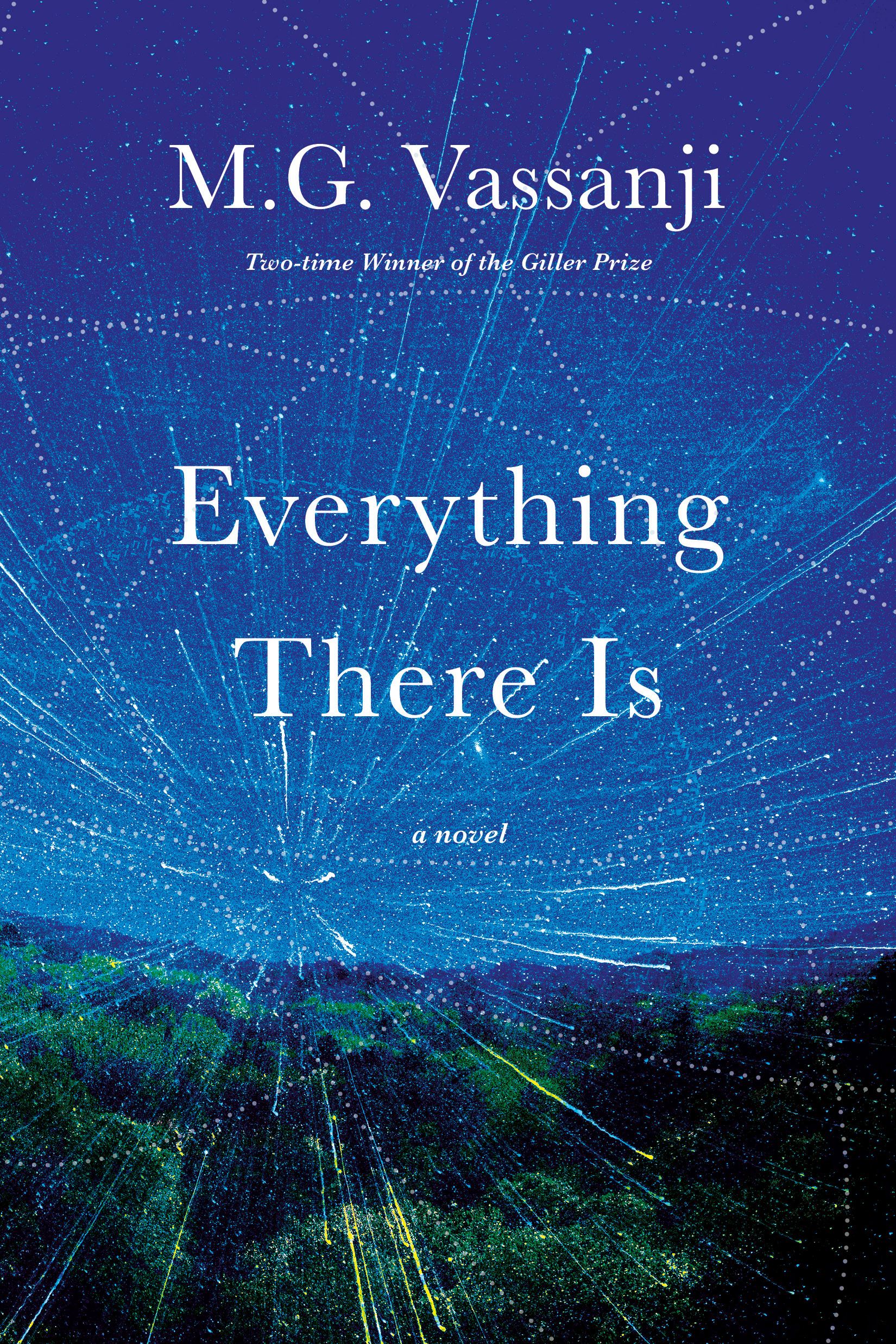
"The duty of the man who investigates the writings of scientists, if learning the truth is his goal, is to make himself an enemy of all that he reads, and . . . attack it from every side. He should also suspect himself as he performs his critical examination of it, so that he may avoid falling into either prejudice or leniency."
— Ibn Al-Haytham [AlHazen] b. 965 CE
"I feel also not able to imagine some will or goal outside the human sphere. My views are near to those of Spinoza: admiration for the beauty of and belief in the logical simplicity of the order and harmony which we can grasp humbly and only imperfectly."
— Albert Einstein
"The aim of physics, or at least one branch of physics, is after all to find the principles . . . that explain everything we see in nature, to find the ultimate rational basis of the universe. And that gets fairly close in some respects to what people have associated with the word 'God.' ”
— Steven Weinberg
This novel, Everything There Is, was inspired by Abdus Salam, one of the twentieth century's great physicists and one half of the Weinberg-Salam model (also called Weinberg-Salam-Glashow model) that unified two of the four fundamental forces in nature. (The other two are the gravitational and the strong, or nuclear, forces. In their arrogance, many physicists have believed that the Universe can be explained, in principle, if we know the nature of these forces.) Salam was a Pakistani, born in undivided India. I did not know him personally—he was of a previous generation. What intrigued me about Abdus Salam was that unlike other great physicists of his generation, he believed in God. He was also a devout Muslim. This novel however is a work of fiction. Any attempt to glean details about the life of Abdus Salam from it would be futile. For that I recommend the biography Cosmic Anger. Nurul Islam of this novel is my invention and exploration about the nature of faith and science.
A Delhi Obsession
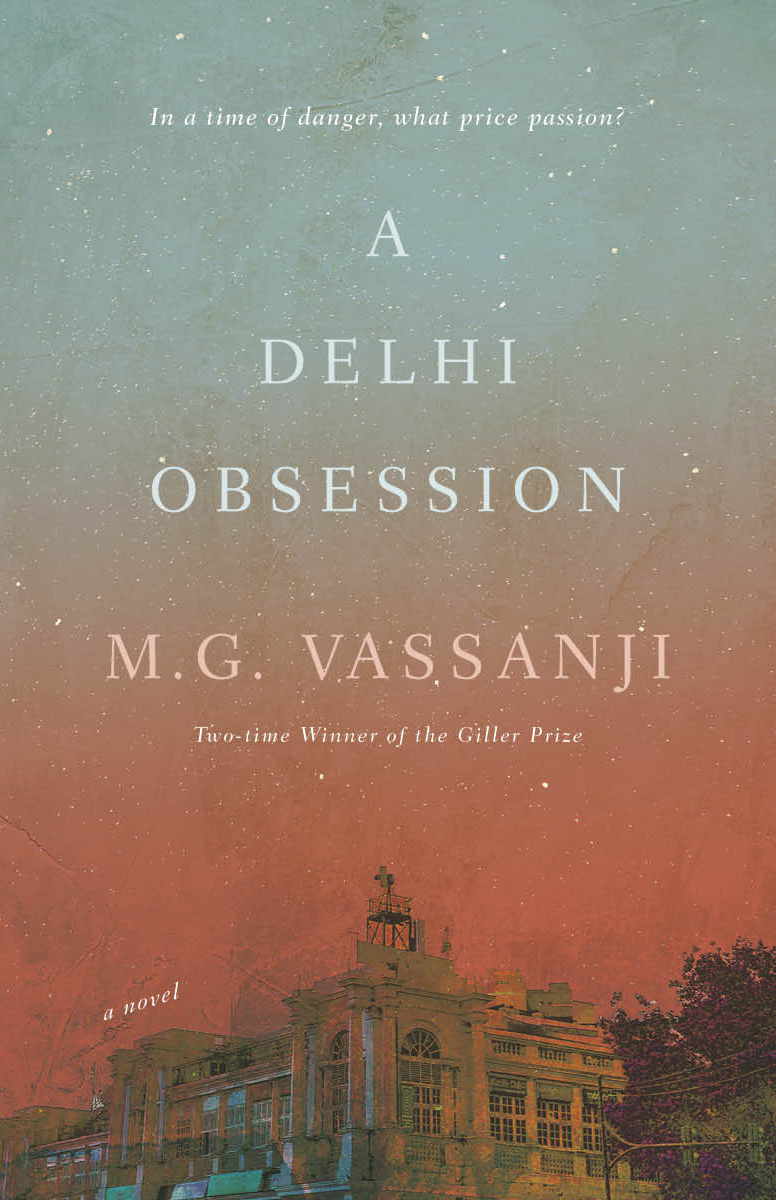
A powerful novel about grief, second chances, tradition and rebellion, set in an exciting present-day Delhi, from two-time Giller Prize winner M.G. Vassanji.
Munir Khan, a recent widower from Toronto, on a whim decides to visit Delhi, the city of his forebears. But he has never visited India before.
While sitting in the bar of the Delhi Recreational Club where he’s staying, an attractive woman joins his table to await her husband. The two are from different worlds: Munir is a westernized agnostic of Muslim origin; Mohini, a modern Hindu woman. Utterly witty and charming, she’s religiously traditional, but also a liberal and provocative newspaper columnist. Against her better judgment, Mohini agrees to show Munir around the city. As they explore the thriving markets and historical buildings of Old Delhi, an inexplicable attraction begins.
In a period of rising Hindu nationalism in modern India that at times finds outlet in senseless violence, their passionate love affair is impossible. Constantly lurking at Munir’s Club is the menacing and foreboding presence of a fanatical nationalist group. To them Munir Khan is simply a Muslim “love-jihadi” who has led Mohini, the pride of Hindu womanhood, astray.
At what cost, their passion?
Nostalgia
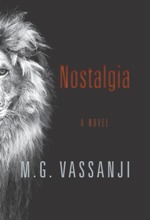
In an indeterminate future in the prosperous countries of our world, people can live long lives in constantly rejuvenated bodies. Human immortality seems at last within reach and age has ceased to be a factor. A renewed body requires a new identity; therefore a person’s past history is erased from the mind and a fiction of choice implanted instead. On occasion, though, cracks emerge and reminders of previous lives seep through into the conscious mind, threatening destruction.
Dr. Frank Sina specializes in sealing such memory leaks. A brilliant and respected scientist, he lives a more or less contented private life with his young lover. One day, a strange-looking patient called Presley Smith arrives in his office, bothered by a persistent thought that is evidently a leaked memory. Thus begins an intriguing relationship. Who is Presley Smith, what abandoned world does he come from, and why do the thoughts of this one patient so obsess Frank Sina? In his attempts to help his tortured patient, irreparable cracks in Frank’s own fiction begin to emerge.
"A complex political and psychological allegory that draws parallels between the different ways civilization maintains control over disruptive forces coming from without and deep within."
The Toronto Star
"Brilliant . . . This may be the most radical Canadian novel I have ever read."
Donna Bailey Nurse, Literary Review of Canada
"Vassanji hardly needed the cover of speculative fiction to explore generational anxiety, ethnic identity, economic subjugation, or postcolonial strife. Yet, it’s a genre he inhabits with ease. Better still, the change of scenery has put him in an appealingly playful mood. Nostalgia is often funny and ironic." The Globe and Mail
The Magic of Saida
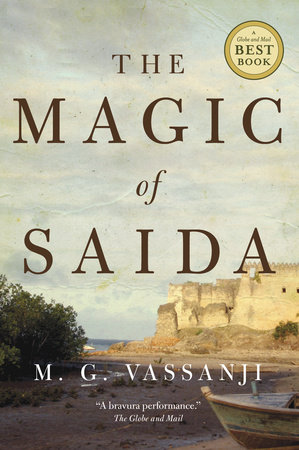
In historic Kilwa, on the coast of Tanzania, Kamal Punja is the "dark Indian" boy, son of an Indian father who absconded and an African mother; his playmate Saida is the granddaughter of a famous Swahili poet who narrates the history of the country through his epic verses. Kamal teaches English and arithmetic to Saida, she teaches him the Arabic script and poetry. They seem destined for each other, until Kamal is sent away to Dar es Salaam to take up his Indian heritage. Now a successful Edmonton doctor, in middle age Kamal returns to his native Kilwa to search for his childhood sweetheart. What he finds is a nightmarish legacy of his broken promise. A story of love, exile and return, embedded in a culture where history is all around, and magic and poetry are the stuff of everyday life.
"A gripping narrative...[Vassanji's] material is so compelling that he needs little more than to adopt the role of a chronicler... A humble village, in the imagination of this chronicler, becomes a vortex of varying belief systems and ways of life." - The National Post (Toronto)
"Mysterious and haunting.... The seductive power of Vassanji's prose mesmerizes.... Conrad would approve." - Quill & Quire
"The Magic of Saida is the sort of novel that, upon finishing, one wants to immediately read again, to examine, to study just how Vassanji works his narrative magic, and to allow oneself to savour it just that little bit longer." - The Globe & Mail
"An ambitious, passionate work about racial identity, deracination and the unsolvable mysteries of the human heart." - Kirkus Reviews
"A sensitive examination of love, loss, and homelessness...It's impossible not to feel enormous sympathy for a man who overcomes so many hurdles except that of his own humanity. For creating this character, MG Vassanji must be thanked." - The Vancouver Sun
The Assassin's Song
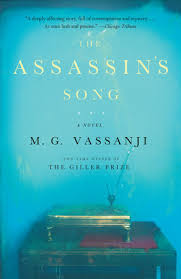
In the aftermath of the Gujarat violence of 2002, Karsan Dargawalla, heir to Pirbaag--the shrine of a mysterious medieval sufi--begins to tell the story of his family. Growing up in the 1960s, Karsan is next in line after his father to assume the lordship of shrine. But he desires to be "just ordinary." Against his father's wishes he leaves home to study at Harvard, eventually marries and settles in Vancouver. Not until the tragedy strikes, in Canada and at Pirbaag during the violence, is he drawn back across thirty years of estrangement to discover what, if anything, is left for him in India
"A beautiful book, not to mention brave.... Vassanji's new novel is nothing if not timely. But this novel also feels timeless, partly because of the vast history it spans.... At a time when fanatical fundamentalism in both East and West derides the idea of gentle, simple faith, Vassanji confirms the significance of the spirit--and, honestly, the soul is altered." - The Globe and Mail (Toronto)
"Making a general virtue of its own exceptionalism, The Assassin's Song is both particular and universal, which is one of the marks of great literature. Historical novel, bildungsroman and terrorist thriller all rolled into one, it is above all a celebration of religious tolerance, which is more necessary now than ever in Gujarat and elsewhere." - The Guardian (UK)
"A deeply affecting story, full of contemplation and mystery...Vassanji has given us an exceedingly relevant novel that should be required reading in our divided times." - The Chicago Tribune
"A resplendent novel". - The New Yorker
Finalist: The Giller Prize, The Governor General's Award, The Writers Trust Fiction Prize, The Crossword Prize (India).
The In-between World of Vikram Lall
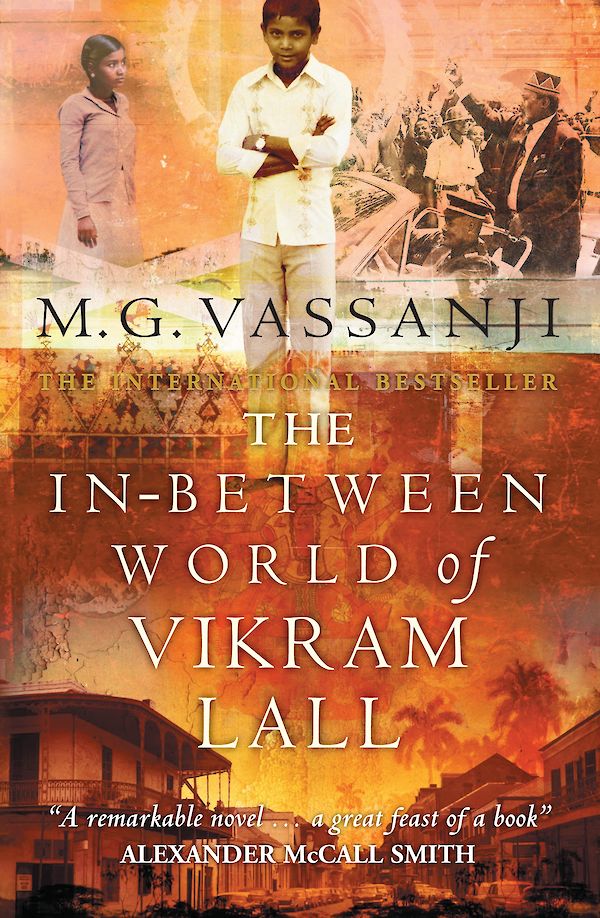
Winner of the Giller Prize
Vikram Lall, the grandchild of an Indian railroad worker, comes of age in 1950s Kenya. Against the unsettling backdrop of Mau Mau violence and the country's struggle for independence, Vic and his sister Deepa search for their place in a world sharply divided between Kenyans and the British.
"Tautly written.... Admirably captures the tenor of the postcolonial period: the predicament of the Asian minority, the corruption that marred Kenya's fledgling independence, and the individual tragedies that were the cost of the revolution." - The New Yorker
"Brilliantly written and deeply felt.... This beautiful novel...is proof that fictional truth can illuminate an epoch in history like nothing else." - The Boston Globe
"Brilliant.... Visceral.... wrestles passionately and intelligently with big intractable questions. Belonging in a category with Tolstoy's War and Peace, Vassanji's saga is sweeping in scope." - The Globe and Mail (Toronto)
"Glorious.... Both a gripping story and an enduring historical document." - The National Post (Toronto)
"A good example of how the postcolonial novel should be written.... This is the work of a writer at the top of his form." - The Guardian (UK)
Amriika
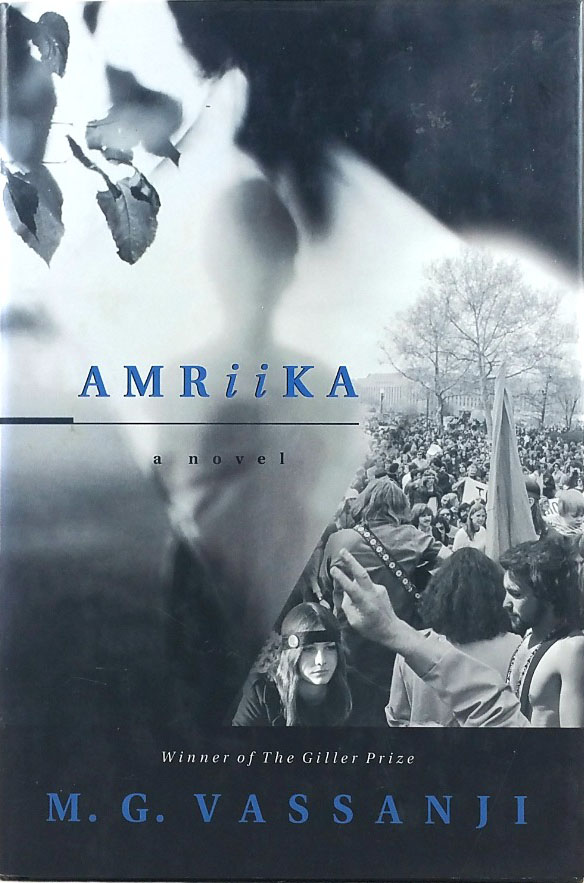
Ramji, a gifted student from Dar es Salaam, Tanzania, goes to the United States on a scholarship. There, though conservative by nature and deeply religious, he gets drawn away from his beliefs and into the radical student politics and counterculture of the sixties. Many years later, feeling that he has sold out on his left-wing politics, he abandons his middle-class life on Toronto to join a radical publishing outfit in Los Angeles--only to discover in the ensuing tragedy that the line between radical politics and terrorism can be thin and elusive. Written just before 9/11, this novel turns out to be strangely prescient, while providing a graphic description of the sixties' student counterculture from an "outsider" perspective.
The Book of Secrets
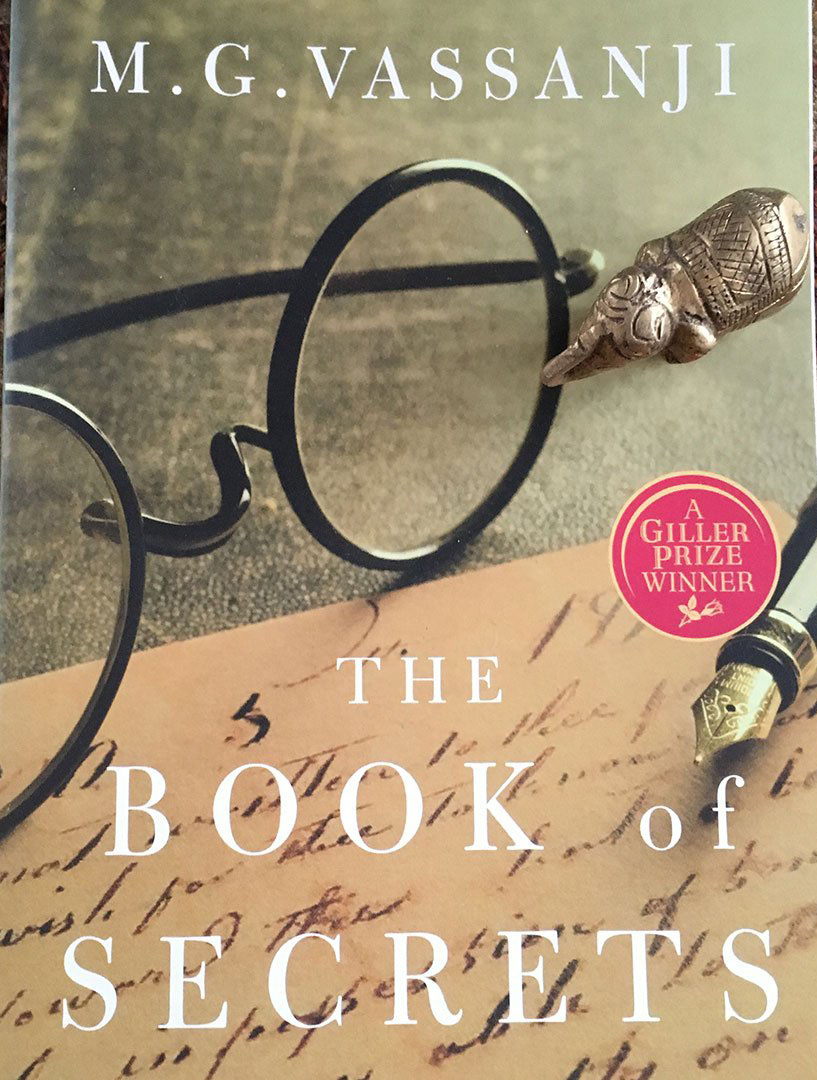
Winner of the Giller Prize
Pius Fernandes, a retired schoolteacher in modern-day Dar es Salaam, is given a recently discovered diary of a British colonial administrator from 1913-14. Set at the dawn of the First World War, the diary tells an intriguing secret about a liaison in the past, while describing an early Asian immigrant community in a border town. Pursuing the story of the diary and its secret, Fernandes discovers that it is as much the untold history of East Africa he is unravelling as his own self.
"Part generational history, part detective story, part social chronicle, the novel is a living tapestry to join the past to the present, a continuing commentary on the act of storytelling, which is being dramatized as we read." - Alice Munro, Mordecai Richler, David Stains (citation from Giller Jury)
"By turns detective story, family saga [and] national history... A rich, evocative meditation on how and why stories are written... A wonderfully ambitious and absorbing novel." - Sunday Times (London)
"...a chillingly accurate novel." - The Times (London)
"A love affair with the past...an exquisite, tender, and possibly great novel." - The New Yorker
"A testament to the almost mystical power of written words, Pius Fernandes's search for the truth is also a celebration of storytelling." - The New York Times
"M G Vassanji masterfully weaves an extraordinarily colourful and richly complicated carpet.... The Book of Secrets is a big book in every sense. It contains both love and forgiveness. And at its heart is an enormous generosity." - The Toronto Star
No New Land

Nurdin Lalani and his family, Asian immigrants from Dar es Salaam, have come to the Toronto suburb of Don Mills, only to find that the old world and its values pursue them. A genial orderly at a downtown hospital, Nurdin has been accused of sexually assaulting a girl. Although he is innocent, traditional propriety prompts him to question his own thoughts. Ultimately his friendship with the enigmatic Sushila offers him an alluring freedom from the past...
"It is part of Vassanji's great talent to demonstrate that the minor changes...unexpected love, sex, accusations...in the life of a very modest man are, in fact, transformations of history."
The Globe and Mail
"A rich portrait of a transplanted community." Calgary Herald
"A novel of considerable charm and intelligence, informed by a delightful sense of irony." MORDECAI RICHLER
The Gunny Sack
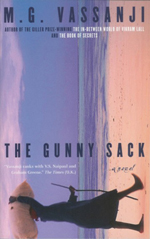
Far away from the coastal city of Dar es Salaam (Tanzania), an exiled Salim Juma inherits, from his great aunt Ji Bai, an ancient gunny sack of mementos. It hides the forgotten relics of the past, becoming--as he tries to make sense of them--a veritable Scheherazade, releasing tantalizing fragments of memories and stories of three generations of Indian African immigrants. As he examines these contents, one at a time, he gives shape to his story, and that of his family and community, that becomes this novel.
WINNER OF THE COMMONWEALTH FIRST NOVEL PRIZE (AFRICA)